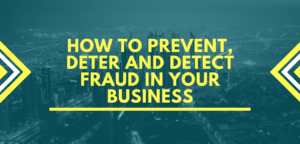Make Sure You Report All of Your 1099 Income

With the job market continually fluctuating, it seems that more and more people are creating their own jobs. Whether it’s starting your own company, doing some extra business on the side, or working as a freelance private contractor, a growing number of individuals are earning self-employment income.
The extra income is surely nice, whether it’s to help make ends meet or to add a little more cash to your savings. However, with all that extra income, you have to be sure you are reporting it. Failing to do so can cost you with the IRS.
Even though you won’t get a W2 for this kind of income, you still need to report it. You should receive a Form 1099-MISC from anyone with whom you do $600 or more of business in a given year. Even if a company doesn’t send you a Form 1099 you are still responsible to report that additional income. Likewise, if you earn less than $600 that doesn’t mean you don’t have to report that income; it just means you won’t get a 1099 for it.
If you are self-employed then you will need to use a Schedule C with your Form 1040 when you file your taxes. You are also responsible for the 15.3 percent self-employment tax. There are a lot of questions and concerns when it comes to self-employment and the forms that go with it. We can help you with all your tax planning and tax filing needs, so give us a call today at 1-877-CPA-2006, or click here.
8 Golden Techniques To Get People To Love The Rules
8 Golden Techniques To Get People To Love The Rules By Joseph Plazo Different things motivate different folks. Some people are motivated to enhance their appearance while others are motivated by prestige or conquest. Others are motivated by money. When it comes to work, many people are not motivated to do much of anything except…
How to Prevent, Deter and Detect Fraud in Your Business
How to Prevent, Deter and Detect Fraud in Your Business “Fraud has a direct impact on your company’s bottom line. It also threatens your company’s hard-earned reputation.” We have seen it all and we can help you become more savvy about preventing fraud and detecting it. Overview: What is Fraud? What are some warning signs…
Employer’s Quick Guide to Avoiding Sexual Harassment Liability
By Myron Curry Employers can be held liable for any sexual harassment that occurs in the workplace. However, if they take reasonable care to prevent and correct harassment, they will not be liable. The following article looks at the elements of reasonable care that will greatly reduce the risk of sexual harassment liability. Written Policy.…



